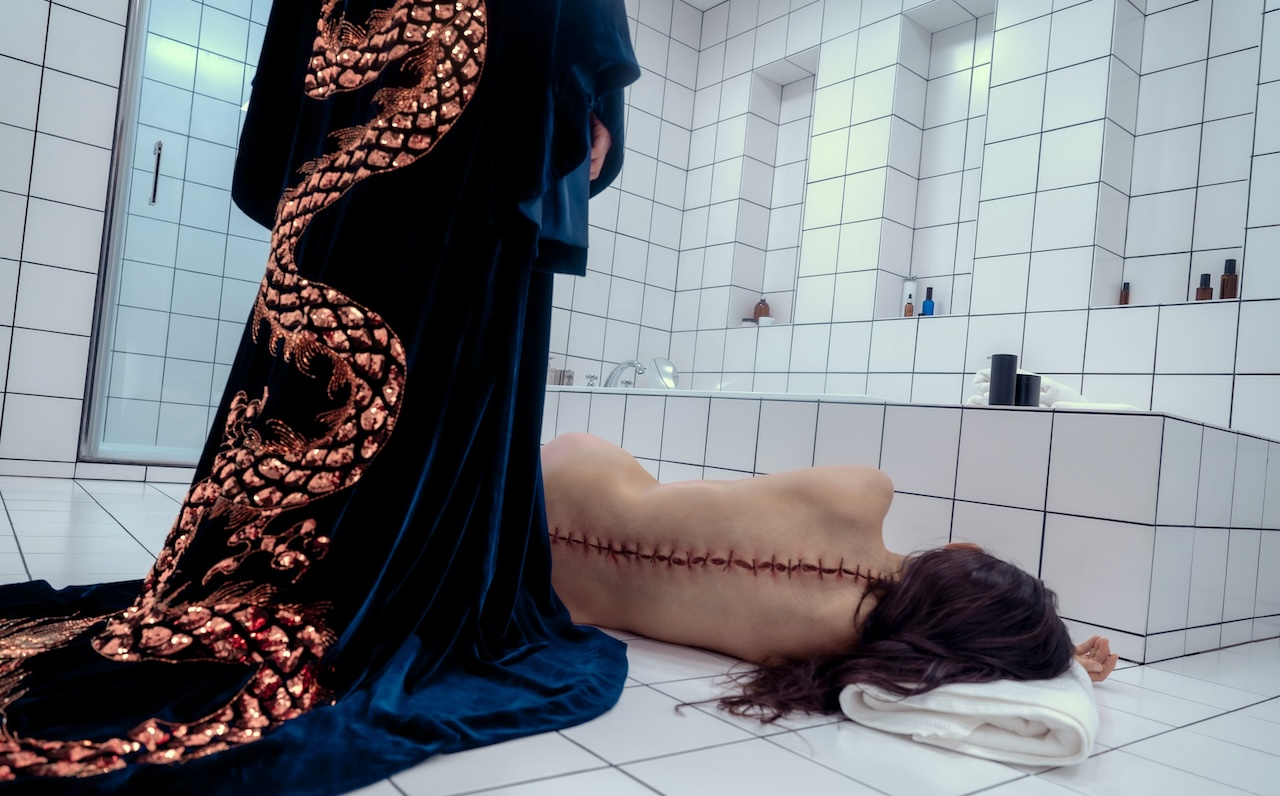The Substance

In an infamous scene from Fleabag, Phoebe Waller-Bridge’s character professes she would trade five years of her life for the so-called perfect body, before admitting that it’s a “bad feminist” take. Despite the rise of body positivity movements, it would be difficult to find any woman who wouldn’t, if completely honest with herself, be tempted by this deal too.
Cannes horror sensation The Substance explores this concept and tests how far we are willing to go in order to achieve physical perfection.
On her 50th birthday, television star Elisabeth Sparkle (Demi Moore) is dropped by her studio, like a carton of milk that’s reached its expiration date. As she struggles with her sense of self-worth, she succumbs to the offer of a dubious company and orders “the substance”, an injection that promises to unlock a younger and more beautiful version of herself. The kit comes with clear instructions, yet what could be the harm in bending the rules just a little?
In her sophomore film, French director Coralie Fargeat (Revenge) boldly reimagines The Picture of Dorian Gray as a piece of outrageous body horror, aimed at challenging the misogynistic demands of youth culture – often perpetuated by men aging no less (Dennis Quaid portrays studio boss Harvey).
Benjamin Kracun’s (Promising Young Woman) stunning cinematography exposes beauty and horror as two sides of the same coin. From the impeccable opening sequence, which captures the meteoric ephemerality of celebrity with a top shot of Sparkle’s star on Hollywood’s Walk of Fame in time lapse, each composition is simultaneously critiquing and complicit. Margaret Qualley co-stars as the younger form, Sue, and the covetous way her body is ogled and consumed by the camera makes it relatable why someone would risk the horrors of the procedure for the chance to look like this.
It is Demi Moore’s most daring performance to date, and as it seems to deliberately build on the milestones of her career, it is hard to imagine any other actor playing the part. With the piece’s tone reminiscent of the dark humour of Tales from the Crypt, one is immediately transported back to Moore’s episode on the anthology show, as well as to iconic films like Striptease.
A famous saying likens drinking to borrowing happiness from tomorrow. The Substance dwells on this illogical, self-destructive aspect of human nature, fixated on short-term thinking. Initially metaphorical through Sue’s alcohol consumption and Elisabeth’s binge eating, the theme deepens as both women quite literally live on borrowed time. Each choice made by one affects the other, with their interconnected fates manifesting in increasingly gruelling distortions.
Even if The Substance were to leave Cannes empty-handed (which seems unimaginable), comparisons between Fargeat and Julia Ducournau, who clinched the Palme d’Or in 2021 with her second feature Titane, are inevitable. Both filmmakers not only masterfully defy the expectations of women in the horror genre but also break the mould in a competition as steeped in tradition as Cannes.
Without a doubt the horror film of 2024, The Substance tackles all symptoms of the disease that is the capitalisation of female beauty and is not afraid to point out that the self is sometimes one’s worst enemy.
Selina Sondermann
The Substance does not have a UK release date yet.
Watch the trailer for The Substance here:
Read more reviews from our Cannes Film Festival 2024 coverage here.
For further information about the event visit the Cannes Film Festival website here.
























Facebook
Twitter
Instagram
YouTube
RSS